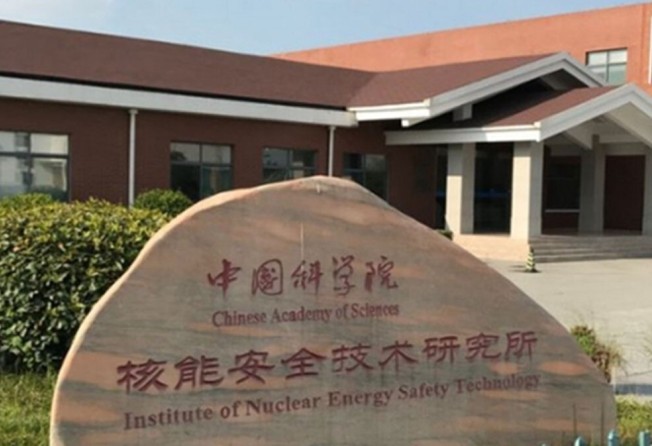Vice-premier demands answers on brain drain from Chinese nuclear institute after over 90 researchers quit
- Liu He orders team to find out why bright young scientists are leaving the Institute of Nuclear Energy Safety Technology
- The Chinese Academy of Sciences has already sent its own investigators to Hefei amid reports of inter-agency friction and private sector poaching

China’S Vice-Premier Liu He is demanding an investigation into the exodus of scientists at a key state-run nuclear energy research institute.
Liu, a top leader in charge of China’s economic and trade policies, has ordered a special team to be sent to the Hefei Institutes of Physical Science to look into the mass resignation of researchers.
Chinese media have reported that more than 90 researchers, most of them PhD holders, had recently resigned from the Institute of Nuclear Energy Safety Technology (INEST) in the eastern city of Hefei.
INEST is part of the Hefei Institutes of Physical Science, which is under the state-run Chinese Academy of Sciences, the country’s top research body.
According to its official website, INEST is devoted to the research and development of advanced nuclear energy and safety technology. Its research areas include neutron physics, advanced fission energy, fusion energy and extended nuclear technology applications.
The Chinese Academy of Sciences announced Liu’s investigation on its website on Tuesday.
According to a report by China Business Journal, clashes broke out in June between INEST employees and staff from its parent Hefei Institutes of Physical Science, because of disagreements over which side should control access to INEST offices.
Another staff member told news site The Paper that the researchers who had resigned had been “poached”.
The order to investigate by the vice-premier underscores the importance of the issue. On July 17, days before Liu’s remark was published, the Chinese Academy of Sciences sent its own investigators to Hefei.
Scientific research in China has largely taken place in state-run universities and research institutes.
But in recent years, more young researchers are willing to give up the stability and better social benefits at state institutions in exchange for higher salaries and more freedom at private companies, according to media reports.
In 2018, a rocket scientist who left a state-owned aerospace technology firm to work for a private company sparked criticism that state-owned companies failed to retain talent with proper compensation.